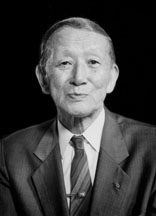A Quote by Shinichi Suzuki
An unlimited amount of ability can develop when parent and child are having fun together.
Related Quotes
It's tough for parents to talk to children about heavy-weight topics such as peer pressure, drugs and morality if they don't already have a closeness. A parent can't just all of a sudden pick out an hour and talk to a son about being morally clean if the parent and child haven't spent much time together for three or four years. I think closeness is developed more quickly by having fun together.
A conscious parent is not one who seeks to fix her child or seek to produce or create the 'perfect' child. This is not about perfection. The conscious parent understands that is journey has been undertaken, this child has been called forth to 'raise the parent' itself. To show the parent where the parent has yet to grow. This is why we call our children into our lives.
My son's dad is committed, and involved, and amazing. We're actually really good friends. But I think it's dangerous to speak negatively to the child about your ex or the absent parent, because, believe it or not, they learn very quickly who the other parent is. And it's important that they develop their own attitudes and opinions about that other parent based on their experiences, not based on what someone has said about them.
Without a sense of the shame or guilt of his or her action, the child will only be hardened in rebellion by physical punishment. Shame (and praise) help the child to internalize the parent's judgment. It impresses upon the child that the parent is not only more powerful but also right. Like the Puritans, Locke (in 1690), wanted the child to adopt the parent's moral position, rather than simply bow to superior strength or social pressure.
One of the most effective strategies to make your child more self-control is the weekly giving of allowance or pocket money as an opportunity for parents to teach self-control and model self-control. So rather than just handing the child the money and leaving it at that, the parent hands them a modest amount that has to be managed through the week, sits with the child and takes the time to anticipate what's going to be coming up next week, what the child would like to do and helps them to make choices and understand the limited amount of money they have.



































